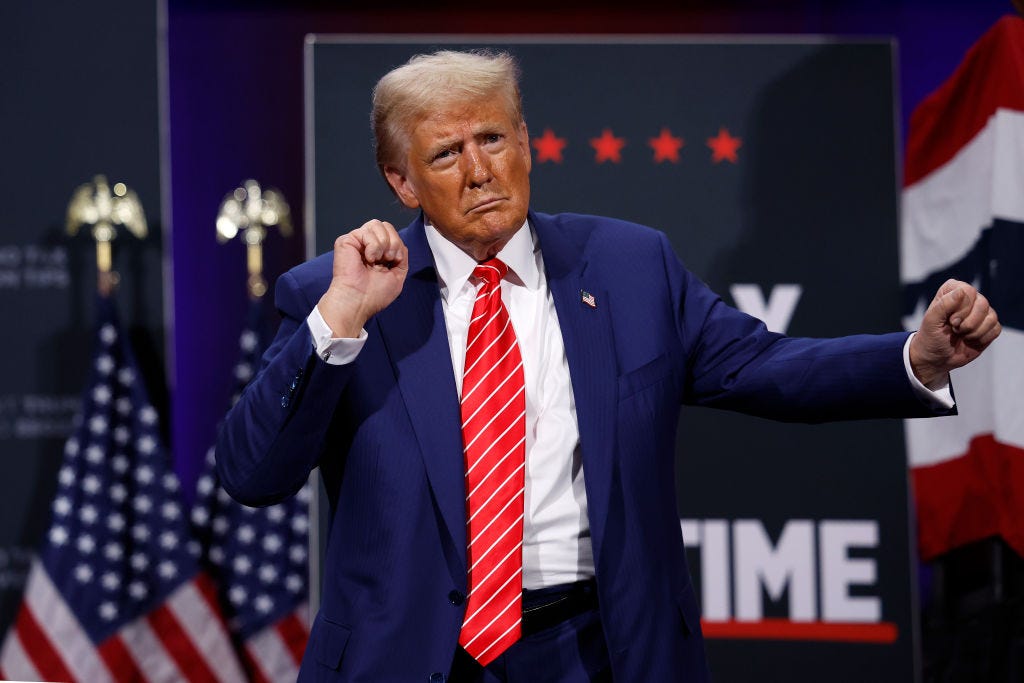Goodbye to the Narrative and Hello to the Weave
Rambling as Election Strategy
‘I do the weave. You know what the weave is? I’ll talk about like, nine different things and they all come back brilliantly together, and it’s like, and friends of mine that are, like English professors, they say, “It’s the most brilliant thing I’ve ever seen.”’
— Donald Trump, rally in Johnstown, Pennsylvania, 30 August 2024
Does strategy make a difference when it comes to winning presidential elections? There is an argument that the results will be determined by some core factors – the historic allegiances of voters, whether the country is at war, the state of the economy, as well as the character and records of the candidates.
There is very little a brilliant campaign strategy can do when all the obvious indicators are pointing in the wrong direction. Yet top-notch strategists are employed by political campaigns at vast expense and given command of considerable resources so that they can get their candidates over the line. Those who make an impact, such as Lee Atwater with George H Bush, or James Carville with Bill Clinton, are celebrated and, like great generals, their campaigns are studied for examples of exceptional practice.
There are some standard questions about whether it makes sense to occupy the centre ground or concentrate on motivating the base to get out and vote, or the value of relying on accentuating the negative aspects of the opponent hoping that there is no scandal to be discovered or even slyly manufactured about your own candidate. Whatever strategy is chosen its implementation is often assumed to depend on seizing control of the ‘narrative,’ essentially stories stories told about the key issues, the character of the candidates, and the likely course of the campaign.
This preoccupation with the narrative in political strategy fits in with similar trends in thinking about both military and business strategy, in which much effort is devoted to influencing others about whatever it is you are selling or fighting for. Advisors stay close to senior leaders to make sure they don’t cause unnecessary controversy by straying ‘off message’. Constant efforts to frame the core issues at stake represent an unavoidable feature of contemporary election campaigns, and the quality and impact of these efforts in turn frames the way commentators and pundits discuss them.
But this presidential election challenges many of our assumptions about the role of narratives. What difference they make, along with other aspects of the election strategies of the two candidates, will be easier to answer after the election. But for now we can consider whether something has happened that has disturbed the assumption that a compelling narrative is essential for election success. Has Donald Trump replaced it with the ‘weave’?
Keep reading with a 7-day free trial
Subscribe to Comment is Freed to keep reading this post and get 7 days of free access to the full post archives.


